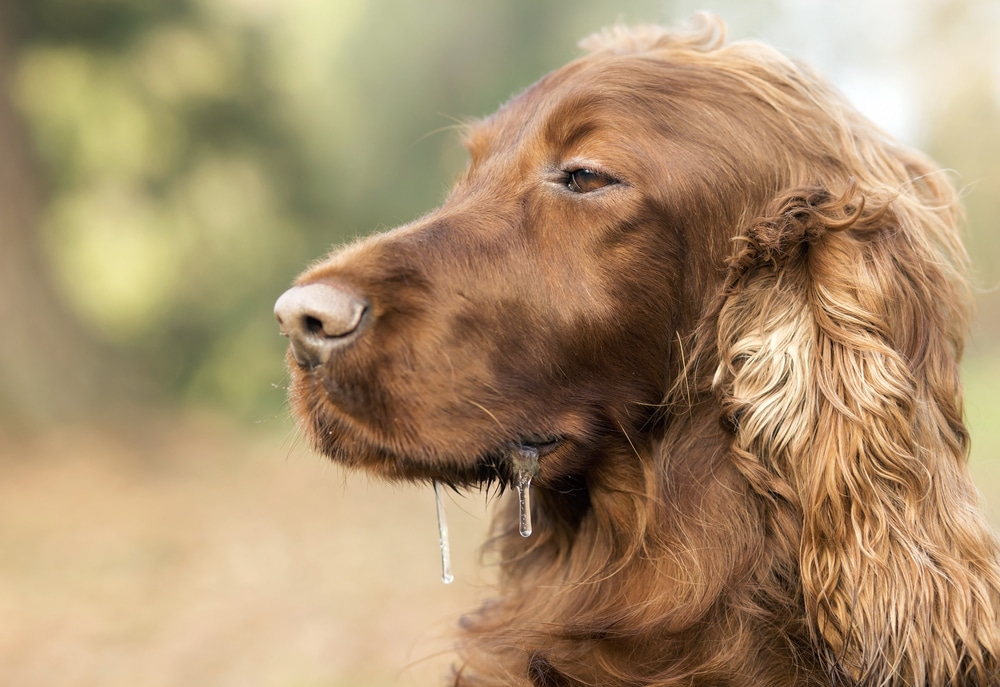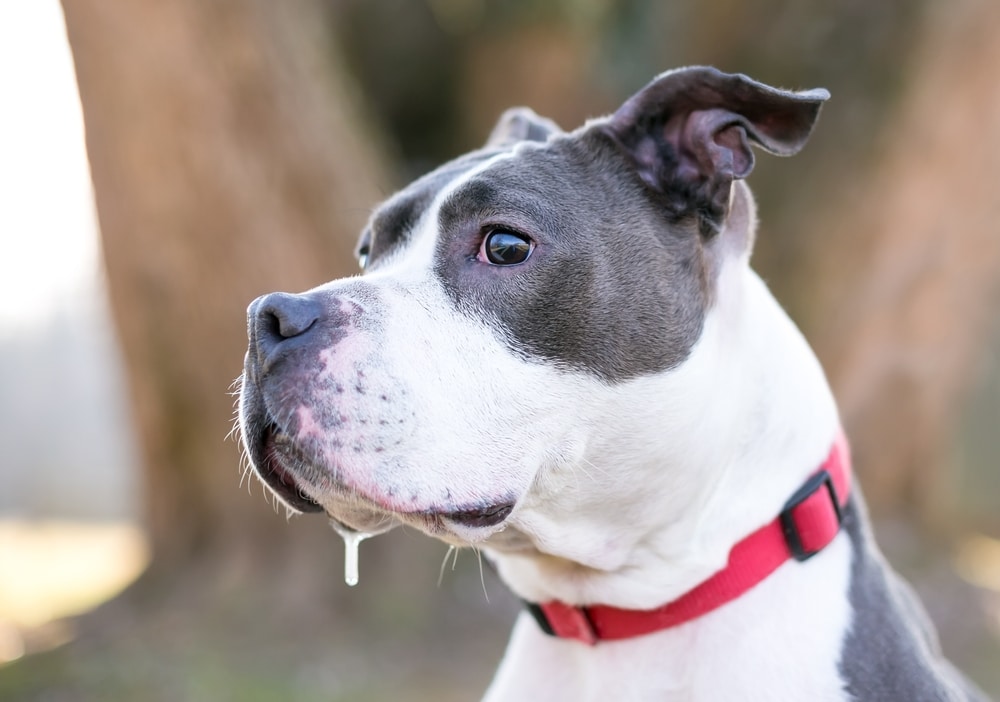Whether your pup drools a lot or just a normal amount, it is important to monitor their saliva production. Also, check for other possible symptoms that could indicate an underlying medical problem. But why do dogs drool anyway?
Dogs drool for several reasons, including excitement, anticipation, fear, pain, heat, and hunger. They may also simply have an excess of saliva in their mouths that needs to be expelled. Sometimes, it can even be a sign of illness or injury. Whatever the cause, drooling is part of being a dog and can be managed with proper care.
Table of Contents
What Is Drooling in Dogs?
Drooling, also known as slobbering or ptyalism, is the excessive production and flow of saliva that has accumulated in the mouth or oral cavity. It is a normal part of life for most dogs and can range from barely noticeable to very noticeable.
The Bloodhound, Saint Bernard, and Mastiff are just a few of the breeds known for their prodigious salivation. The extra skin around these dogs’ muzzles and lips creates folds that amass saliva until it drips from the lips or is flung during headshakes. Additionally, water may be retained in all that loose skin after they have quenched their thirst.
In most cases, drooling is a normal and harmless phenomenon. However, it can also indicate medical problems such as nausea or dental disease. If your pup’s drooling persists for more than several minutes or is accompanied by other symptoms like vomiting or difficulty swallowing, it is best to seek veterinary attention.
What Causes Dogs To Drool?

Drooling is a natural behavior for dogs, but excessive drooling can be caused by several different factors. Here are some common causes for increased drooling.
Behavioral Causes
Some dogs are especially prone to drooling in certain situations, such as when they’re excited or anxious. This kind of drooling is normal and nothing to worry about.
Excitement
Dogs may drool when they are highly excited, especially in anticipation of something good, like going for a walk or meeting a new playmate. The drooling tends to be more excessive as the dog’s excitement increases.
Anticipation
If a dog senses something rewarding is around the corner, such as a treat or a good belly rub, it may start drooling in anticipation. This is due to the release of saliva triggered by the thought of something pleasurable.
Food-Seeking Behavior
Dogs may also drool when they are searching for food, just like humans salivate when they smell something delicious.
Affection And Comfort Seeking
Dogs may drool when they want affection or comfort from their humans, as this behavior can be comforting for them in times of stress.
Anxiety Or Fear
Excessive drooling is often a sign of fear or anxiety in dogs, indicating the dog is feeling stressed or overwhelmed. If your dog is drooling excessively, it may be a good idea to check in with them and try to determine the source of their stress.
In addition to these common causes, excessive drooling can also be caused by medical issues such as oral pain, nausea, gastrointestinal problems, or other illnesses.
Health-Related Causes of Drooling
Drooling can be caused by a number of health issues, including dental problems such as gingivitis or periodontal disease, inflammation in the throat due to infection and allergies, a reaction to medication, and even foreign objects stuck in the mouth. It can also occur due to liver or kidney disease, heat exhaustion, or other serious illnesses.
Poor Oral Hygiene
Poor oral hygiene can lead to increased drooling due to bacteria and plaque build-up on the teeth and gums. This can cause inflammation of the mouth, throat, and even ulcers which may result in excessive drooling.
Nausea And Indigestion
Nausea is a common cause of drooling, as the body attempts to rid itself of any ingested toxins or food particles that are causing discomfort. This can be caused by indigestion due to the ingestion of spoiled foods or simply overeating.
Pain Or Illness
Pain and illness can lead to increased drooling as the body attempts to soothe irritated areas of the mouth or throat. This can be caused by inflamed tonsils, ulcers in the throat, an abscessed tooth, or any other type of infection.
Medications
Certain medications can have side effects that include excessive drooling as the body tries to rid itself of the substance. This often occurs with medications such as antibiotics, painkillers, and sedatives.
Heatstroke Or Heat Exhaustion
Dogs can be prone to heatstroke or heat exhaustion in high temperatures. This can cause excessive drooling as the body attempts to cool itself down by releasing saliva.
If your dog’s drooling is excessive or persists for more than a few days, it’s best to consult with a veterinarian to rule out any medical issues.
Prevention And Treatment Of Excessive Drooling
The most effective way to prevent excessive drooling in your pup is to avoid triggering any of the conditions that can cause it. For example, if your pup tends to drool when they get excited, you may need to train them and help them learn how to remain calm in challenging situations. Other strategies include limiting their exposure to heat and making sure they stay hydrated.
If your pup is already drooling excessively, there are several treatment options available. If it’s due to an underlying medical issue, such as a dental infection or injury, your vet may recommend antibiotics or other medications to help reduce the symptoms.
Otherwise, you can try home remedies like adding electrolytes to their water or using a humidifier in the room they sleep in. Finally, if all else fails, you may need to take your pup to the vet for further examination and testing.
By understanding why dogs drool and taking steps to prevent and treat it when necessary, you can help ensure your pup stays healthy and happy!
In Conclusion: Why Do Dogs Drool?
Drooling is a normal behavior in dogs, but too much can indicate an underlying problem. To prevent or treat excessive drooling, take steps to manage any trigger conditions and talk to your vet if needed. With the right care, you can help keep your pup’s saliva production under control!
So, is your dog drooling a lot? Let us know in the comments below!
